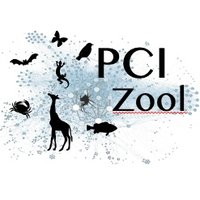Dose, temperature and formulation shape Metarhizium anisopliae virulence against the oriental fruit fly: lessons for improving on-target control strategies
This article has been Reviewed by the following groups
Discuss this preprint
Start a discussion What are Sciety discussions?Listed in
- Evaluated articles (Peer Community In Zoology)
Abstract
Entomopathogenic fungi are a promising tool for the biological control of crop pests provided low or no impact on non-target organisms. Selection for host specificity as well as on-target applications open new avenues for more sustainable strategies for pest management. Isolates of Metarhizium anisopliae (Metschn.) Sorokin have been identified as promising for developing innovative entomovectoring-based strategies for the control of the oriental fruit fly, Bactrocera dorsalis (Hendel) (Diptera: Tephritidae), in Africa. To be effective, this technology requires high strain virulence at a low number of spores, but sufficient incubation time to allow transmission to wild conspecifics. This depends on trophic interactions between the host and the pathogen, which are mediated by abiotic factors.
In the present study, we investigated the virulence of the Met69 strain against adult flies, depending on the inoculation dose, air temperature and formulation. High pathogenicity was observed at very low inoculation doses (LT50 of 4.85 days with 6100 spores per fly) independently of fly sex. Virulence increased with spore load in a tight range (5600 and 6100 spores per fly) and with air temperature observed in the field (20-28°C). Unexpectedly, corn starch used as an adjuvant to increase the carrying capacity of insects decreased the virulence of the pathogen.
The results will help improve area-wide control strategies based on the contamination of wild flies through auto-inoculation devices or interactions with released mass-reared sterile males coated with fungal spores. Furthermore, the study proposes an approach for calibrating area-wide control strategies, taking into account both the insect and pathogen bioecology and the environment in which they evolve.
Author roles
Anaïs Chailleux: Conceptualization, Funding acquisition, Methodology, Data curation, Writing – original draft. Oumou Noumou Coulibaly: Investigation, Writing – original draft. Babacar Diouf: Investigation, Visualization. Samba Diop: Investigation. Ahmad Sohel: Resources, Writing – review & editing. Thierry Brévault: Conceptualization, Funding acquisition, Project administration, Writing – review & editing.


